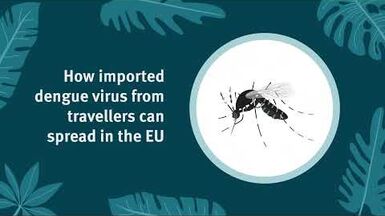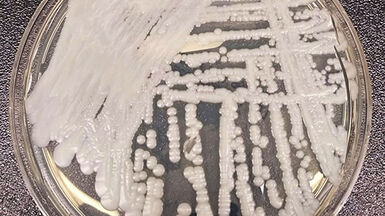Epidemiological update: invasive infections with Mycobacterium chimaera potentially associated with heater-cooler units used during cardiac surgery
On 21 May, Public Health England (PHE) reported that a retrospective investigation identified 13 patients with endocarditis, surgical site infection or disseminated infection with Mycobacterium chimaera or other Mycobacterium avium complex (MAC) species within four years of surgery involving cardiopulmorary bypass.
On 21 May, Public Health England (PHE) reported that a retrospective investigation identified 13 patients with endocarditis, surgical site infection or disseminated infection with Mycobacterium chimaera or other Mycobacterium avium complex (MAC) species within four years of surgery involving cardiopulmorary bypass. This follows a number of reports of such infections in Switzerland, the Netherlands and Germany. The conclusions of the ECDC risk assessment, published on 30 April, remain valid.
The patients identified in the UK had surgery in different hospitals between 2007 and 2014. According to the report published yesterday by Public Health England, ‘a definitive link between the heater-cooler units and the patient infections has not been established by the UK investigation’. Further microbiological investigations are underway. Microbiological investigations at multiple hospital sites in the UK have indicated that non-tuberculous mycobacteria have been found in the water within heater-cooler units and also been detected in the air around the units at some of these hospital sites.
Retrospective case detection and environmental investigations are ongoing to assess the risk and contribute to the development of effective preventive measures. A multinational collaboration for the implementation of a common protocol for case finding, laboratory diagnosis and environmental testing is aiming to support the collection of comparable data.
A set of control measures have been implemented in affected hospitals across Europe. These have included cleaning and decontamination of the heater-cooler units, relocating units outside operating theatres, implementation of protocols for daily water change and/or building customised housing with high-efficiency particulate air filters. In the Netherlands, elective cardiac surgery was postponed until implementation of preventive measures.
In addition, national regulatory authorities for medical devices have been notified in countries that have reported infections.
Healthcare providers involved in caring for patients who have undergone open-heart surgery or other surgical interventions involving cardiopulmonary bypass, such as lung transplant, should be vigilant for cases of endocarditis or other cardiovascular, deep-surgical-site or disseminated infection of unidentified origin. They should also consider testing specifically for slow-growing non-tuberculous mycobacteria such as M. chimaera. Regulatory bodies in charge of licensing and agencies monitoring the safety of heater-cooler units should be aware of the potential association of invasive cardiovascular infections caused by M. chimaera with heater-cooler units and relevant information should be disseminated to all centres performing cardiac surgery.
Sources
- Public Health England. Investigation of M. chimaera infection associated with cardiopulmonary bypass: an update 2015 [updated 21 May]. Health Protection Report, 9(18): news.
- European Centre for Disease Prevention and Control (ECDC). Invasive cardiovascular infection by Mycobacterium chimaera potentially associated with heater-cooler units used during cardiac surgery 2015 [updated 30 April]. Available from: http://ecdc.europa.eu/en/publications/Publications/mycobacterium-chimaera-infection-associated-with-heater-cooler-units-rapid-risk-assessment-30-April-2015.pdf.
- Sax H, Bloemberg G, Hasse B, Sommerstein R, Kohler P, Achermann Y, et al. Prolonged outbreak of Mycobacterium chimaera infection after open chest heart surgery. Clinical Infectious Diseases. 2015 March 11, 2015.
- Products SAfT. Measures for improved patient safety in cardiac surgery 2014 [updated 14 July].
- Isala. Isala heeft melding gedaan van besmetting hartpatiënt met M. chimaera bij Inspectie 2015 [cited 2015 23 April].
- Robert Koch Institut. Informationen zu einem internationalen Ausbruchsgeschehen mit nicht-tuberkulösen Mykobakterien im Zusammenhang mit Temperaturregulierungsgeräten bei Herzoperationen 2015 [updated 30 April]. Available from: http://www.rki.de/DE/Content/Infekt/Krankenhaushygiene/Aufb_MedProd/Mycobacterium_chimaera.html.
- Bundesinstitut für Arzneimittel und Medizinprodukte (BfArM). Möglicher Zusammenhang zwischen Hypothermiegeräten und Infektionsrisiko mit Mykobakterien bei der Herzchirurgie 2015 [cited 2015 30 April]. Available from: http://www.bfarm.de/SharedDocs/Risikoinformationen/Medizinprodukte/DE/Hypothermiegeraete.htmlnn=3495216.







